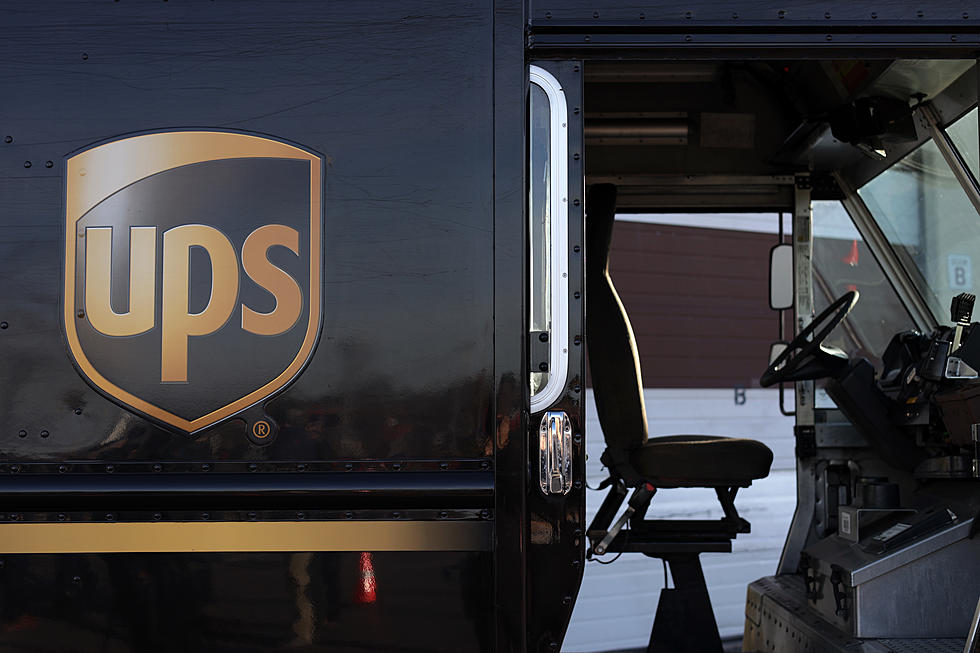
Here’s How a UPS Strike Will Impact Upstate New York
UPS workers are on the verge of a nationwide strike, which could cost billions in economic damage if it goes in effect on August 1.
Why UPS workers want to strike
UPS workers are threatening to walk out of their jobs over issues with pay and safety. The strike authorization letter was released on June 16.
When it comes to safety, employees are demanding the company provide more heat-safety measures, such as installing air conditioning in trucks. That demand was okayed by UPS.
The issue at heart is pay, with employees hoping for UPS to eliminate its two-tier system for weekend workers and those who are paid less.
Another major point of contention was raising salaries for UPS' part-time workers. Part-time employees earn about $16.20 an hour, and workers are demanding a livable starting wage for those working under 40 hours a week.
Neither side seems willing to budge on this matter.
Additionally, no progress was made over eliminating excessive overtime as well as creating more hiring opportunities for full-time employees, and rewarding those who worked through the pandemic.
Now, union and UPS officials are blaming each other for negotiations breaking down before the deadline.
Those threatening to strike are part of the UPS Teamsters union, which represents approximately 340,000 UPS drivers and warehouse workers. In all, the union makes up about half of the company's workforce.
Should these workers walk off the job, it'll mark the single largest strike against an employer in U.S. history.
The last UPS strike happened in 1997. The company lost roughly $850 million during that 15-day strike. It also drove customers to embrace rival services like FedEx.
How a strike could impact Upstate NY
There's no way to put this lightly, a strike would harm the economy and New Yorkers would feel the effects.
UPS officials say their company delivers roughly 25 million packages every day. Conversely, FedEx Ground delivers roughly 10 million packages a day while USPS carries about 24 million packages.
A strike could weaken the already-crippled supply chain, which is still recovering from the pandemic.
If workers were to go on strike, it would result in a large backlog of packages that analysts say could not be absorbed by UPS' competitors. That would result in slower delivery times as well as lost goods and services.
Additionally, businesses that rely on bulk order shipments - like healthcare facilities and restaurants - might suffer financial losses because they won't be able to receive wholesale orders on time to meet demand.
Also, companies that rely on UPS might have to pay more to switch shipping providers because some work under contract and their rates might be more expensive. That could mean the companies will pass those added expenses onto their customers.
Experts warn consumers and small businesses in rural areas might feel the strike's crunch the most because those areas have less delivery options. This could result in residents paying more because demand for alternative providers will balloon.
If the UPS strike goes past 10 days, economists predict it would cost the economy upward of $7 billion. Anderson Economic Group studied the potential impacts of the looming strike and warned customers could experience losses in excess of $4 billion.
Said analyst Shay Manawar:
"In addition to having potentially severe consequences for those who need these supplies, this sort of interruption in service could prove very costly due to required intervention and emergency medical services."
How to lessen the strike's impact
Already, UPS announced it is training non-union employees to perform the same duties as those threatening to strike. While it won't replace the striking workers entirely, the company believes it'll help lessen the blow.
Additionally, businesses that rely on shipments are already alerting customers of how a strike could affect their operations. Some are already taking initiative to switch delivery providers to mitigate whatever impact the strike could have on them.
It's also advised for people to think about what they might need to order after August 1 and have it sent now, while UPS is still running at full speed. That way, you could spare yourself the aggravation of having your shipments or deliveries delayed.
Pitney Bowes Parcel Shipping Index estimates the average American family received 162 packages last year - and UPS accounted for roughly 25 percent of those deliveries.
In short, the strike will upend the world of online shopping, which could force people to turn to brick-and-mortar stores to purchase necessary items.
The lovely thing about physical stores is that many of them offer items for pickup, which would spare you the time wasted roaming around the aisles.
You might also want to consider in-person shopping anyway, since a UPS strike would also impact returns. That would create less headache for you if you purchase a defective item.
As for those who live in rural areas that are far removed from physical stores, experts advise to switch to buying items from a provider that offers its own delivery, like Amazon or Walmart+, to offset any hiccups of a UPS strike.
At this time, the union and UPS officials still have a few weeks to iron out new contract agreements before the July 31st deadline.

Do These Mosquito Products On Amazon Really Work?
More From WIBX 950









